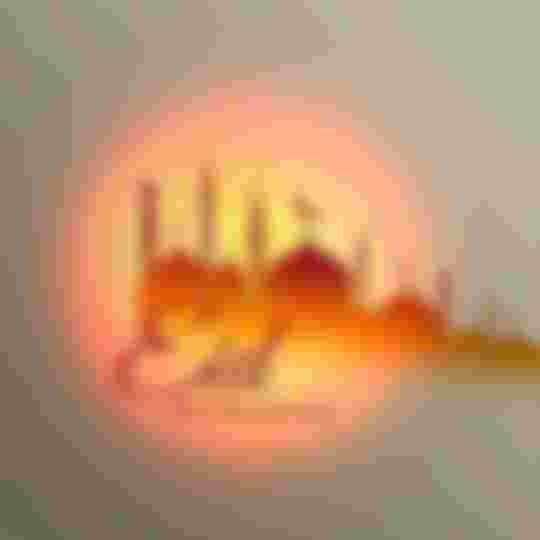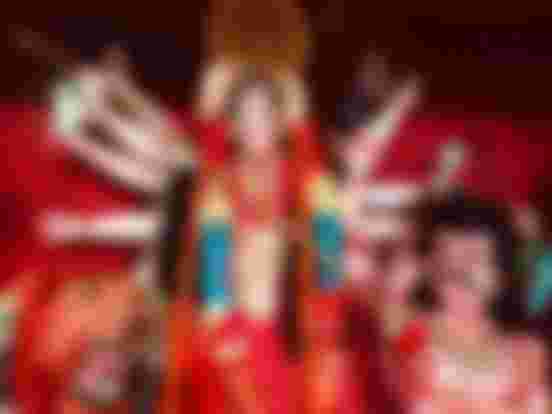People celebrate. The day when people specialize, especially realize the power of your humanity. …… Every day people are small and lonely but on the day of festival people are big, on that day they are big together with all the people, on that day they are great by feeling the power of all humanity. ” Rabindranath Tagore
Many festivals come in the religious, social and cultural life of Bengalis on the stage of the colorful debut of the season. The rhythm of festive life, the veil of daily triviality, the movement to expand the horizon of the soul. Bangladesh is as beautiful in different seasons as it is in different festivals. The people of this country get involved in different festivals at different times. So this country can be called the country of festivals. Not only does the festival bring joy to the human mind, but the overall picture of a country also flourishes through various festivals. The various festivals celebrated in our country are the bearers and carriers of our culture and tradition. Through the festival, man transcends the narrow confines of his daily life to the larger realm of reunion. Everyday busyness makes people's life tired, diversified. In this busy life people want a little joy, a little comfort. Different festivals bring this message of joy in life. Almost every month one or another festival is celebrated in Bangladesh. The festivals of this country sometimes cross the borders of the country and have an impact at the international level.
What is a festival?
‘Festival’ basically means a joyous occasion. Through the festival we express joy and gain joy. But this is not the only joy. The festival is a way to bring happiness or joy to all in the family, social or communal environment. In that sense, the festival makes everyone happy. The English word ‘festival’ in Bengali means festival. However, the word ‘festival’ is used in a slightly broader sense. It is related to society, the individual or family is secondary here.
Types of festivals; There are different types of festivals in Bangladesh. These festivals are an important part of Bengali history and tradition. The festivals of Bangladesh can be mainly divided into several categories. Such as- 1. Religious, II. Social, 3. National and 4. Cultural festival.
These are discussed in detail below:
1. Religious festivals:
Usually religious festivals are held centering on one religious belief and thought after another. Among the religious festivals of Bangladesh are Eid-ul-Fitr, Eid-ul-Azha, Eid-e-Miladunnabi and Muharram. Durga Puja, Kali Puja, Saraswati Puja of Hindus. Buddhapurnima of the Buddhists. The main religious festival of Christians is Christmas.
Eid: Eid is the biggest religious festival of Muslims. Eid means joy, Eid means happiness. Eid comes with the message of joy and reunion. People forget the hatred, the grief. Eid is celebrated very solemnly in Bangladesh. Eid comes twice a year. First comes Eid-ul-Fitr, then Eid-ul-Azha. Muslims fast during the month of Ramadan. The Arabic month of Ramadan is a time of fasting or abstinence. After fasting from the first to the last day of the month of Ramadan, they observe Eid-ul-Fitr on the first day of the month of Shawwal. Eid-ul-Azha is celebrated on the tenth day of the month of Jilhaj. Sacrifice is done on this day. It is called the Eid of Sacrifice. Many also call it the Eid of Sacrifice. The meat of the sacrificial animal was also distributed among the poor relatives. On the day of Eid, everyone wears good clothes. He goes to Eidgah Maidan to perform Eid prayers. After the prayers, they hug each other. On this day everyone organizes a little good food. They share the joy of Eid by eating themselves and feeding the neighbors.

Muharram: Muharram is a sad and solemn festival. Muharram is basically the name of the first month of the Hijri year. On the tenth day of this month, Imam Husain, the grandson of the Prophet Muhammad (peace be upon him), was ruthlessly martyred along with his family in the desert of Karbala at the hands of the Ajid soldiers. The commemoration of this tragic event is called Muharram.

Shab-i-Barat: Shab-i-Barat means good night. A big religious festival of the Muslim society. On the night of Shab-i-Barat, Allah the Almighty forgives the sins of His servants and determines the good fortune of the coming year. Therefore, devout Muslims perform these prayers and seek forgiveness from Allah. Charity and prayers are the main theme of this festival. Emotion, excitement, not joy, the essence of the pursuit.
Durga Puja: Durga Puja is the biggest religious festival of the Hindu community. This puja is performed in autumn. Saptami, Ashtami, Nabami- Durga Puja is held on these three days. However, the festival on the sixth day before the seventh is called Bodhan and the festival on the ninth day after the ninth is called Vijaya Dashami. A unique form of devotion from enlightenment moves the life of Bengali Hindus. Durga Puja begins in a grand manner on the seventh day. However, on the eighth day, the pomp and joy is the most. Aarti is performed for the goddess at night. The puja performed at the juncture of Ashtami and Nabami is called Sandhipuja. The idol of the goddess is offered on the tenth day. Durga Puja ends with the immersion of the idol of the goddess in the river water. But this farewell is not forever. When the Bengali Hindus go to pay homage to the Goddess, they pray that the Goddess brings this mother form every year and brings good news for all. Shakti, Samya, Maitri are the three ideals of Durga Puja established in the life of Bengali Hindus.

Rath Yatra: Rath Yatra is another major religious festival of the Hindu society in Bangladesh. The procession starts from the bathing procession of Jagannath Deva. The idol of Jagannath Deva was taken in a chariot for bathing. Countless devotees followed the chariot. This chariot journey ends in the opposite chariot. This festival is celebrated in different parts of Bangladesh. Apart from these festivals, Hindus also perform festivals like Lakshmi Puja, Saraswati Puja, Kali Puja, Chaitrasankranti, Janmashtami etc.
Bengali New Year: Bengali New Year is a major social festival in Bangladesh. This Bengali New Year is a festival of forgetting the sorrows, pains, fatigue and filth of the old days and accepting the new ones. Bengali New Year is the carrier of our culture and tradition. From this point of view, this day is very significant for every Bengali. Bengali New Year is celebrated in almost every region of Bangladesh. A fair was organized on this occasion. Merchants open new accounts on this day and invite those whose names are in the balance-book to pay the balance. Sweets are also provided for them. It is known as Halkhata. The Bengali New Year is celebrated in a grand style in Dhaka, the capital of Bangladesh. The Mars procession was taken out from the Faculty of Fine Arts of Dhaka University. Cultural events are held throughout the day at the base of Ramna. Fairs are also held in different parts of the country.

Nabanna: Nabanna is the festival of new paddy. In autumn new paddy grows in the house. At that time, the smell of making cakes fell in the houses of rural Bengal. Various types of pitha-puli are made with new rice.
Poush-Parvan: Poush-Parvan is a cake festival. In the month of Poush, cakes are made in every house in this country. Steamed pitha, chitai pitha, chitai pitha soaked in sweet juice, rasapitha etc. The authentic life of Bengal is celebrated in the festival of eating cakes.
Importance of festivals: The significance of festivals in the life of every human being is very deep and wide. We are independent as a Bengali nation. We have our own traditions and culture. A clear identity of this tradition and culture is found through the festival. Our identity is revealed through the festival. There is no sorrow, pain, inertia, filth in the festival. So the festival places the issue of human strength, equality, friendship above all else. There is no difference between people in the joyous festival premises. The image of a gathering of all classes of people without a festival is unimaginable. When there is a festival in the village, all the villages should be united in the joy of the festival. The importance of the festival in establishing secularism is immense. Because people of one community participate in religious festivals of another community. In this way people are liberated from the small boundaries of communalism. The mutual love and camaraderie of the people of different communities further strengthens their social bonds. On the other hand, national festivals awaken our patriotism. The celebration of Independence and Victory Day awakens our patriotic being and shows us our dream of building a new country. For all these reasons, festival is very important.

Festivals bring joy to people's miserable, busy, monotonous life. Gives us a new life by removing fatigue and dirt. So people need festivals in their lives. But keep in mind that the festival does not only mean joy, it does not mean arbitrariness. Due to the influence of western culture, many people in our country are doing whatever they want in the name of festivals. E.g., Thirty First Night, etc. Therefore, special care has to be taken. As a result, many of our festivals are now under threat. We need to re-establish the great values of our festival that have helped us to move forward, to nurture our own culture. If we are all aware of this, one nation, one soul and unity will be formed.




